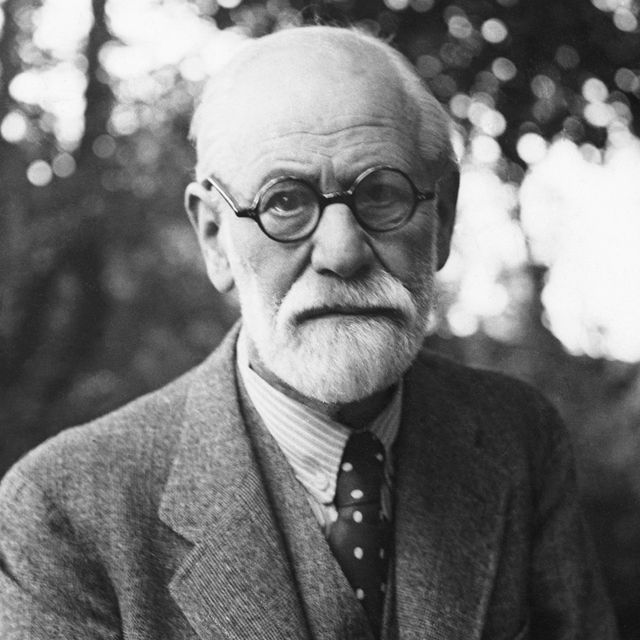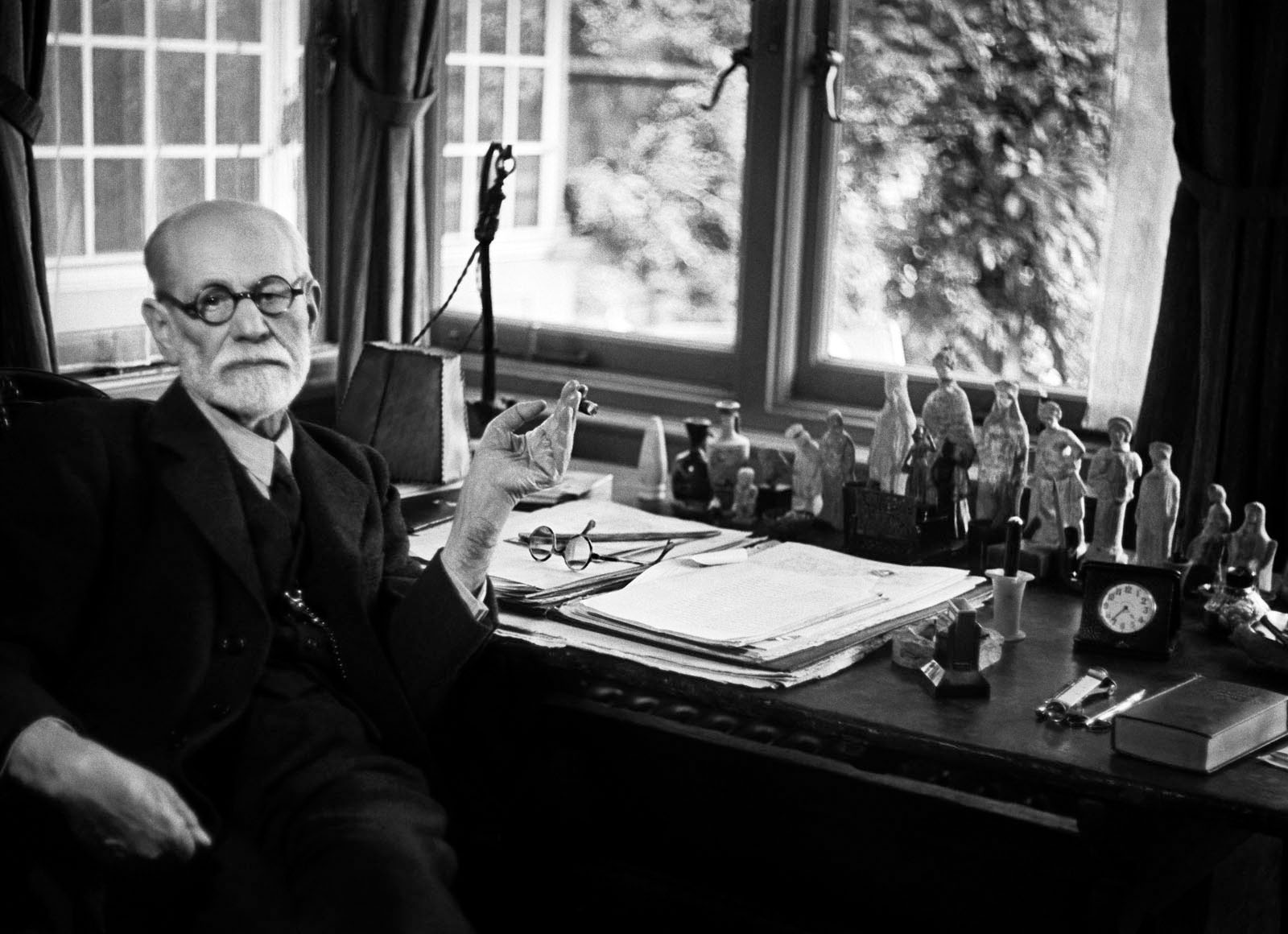Exploring the Depths of the Psyche: The Legacy of Sigmund Freud
Sigmund Freud, the father of psychoanalysis, stands as one of the most influential figures in the history of psychology and the broader field of human thought. Born on May 6, 1856, in Freiberg, Moravia (now part of the Czech Republic), Freud's pioneering work on the unconscious mind, dreams, and human behavior revolutionized our understanding of the human psyche and forever changed the landscape of psychology.
Freud's early years were marked by a deep interest in science and the workings of the mind. After studying medicine at the University of Vienna, he embarked on a career in neurology, conducting research on the anatomy and physiology of the nervous system. It was during this time that Freud became increasingly intrigued by the mysteries of the human mind and began to explore the role of unconscious processes in shaping behavior and experience.
In 1895, Freud published his groundbreaking work, "Studies on Hysteria," in collaboration with his colleague Josef Breuer. In this seminal work, Freud introduced the concept of the unconscious mind and proposed that many psychological symptoms could be traced back to repressed memories and unresolved conflicts from early childhood. This marked the beginning of Freud's exploration of the unconscious and laid the foundation for his later theories of psychoanalysis. One of Freud's most influential contributions to psychology is his theory of the unconscious mind. According to Freud, much of human behavior is determined by unconscious desires, fears, and conflicts that lie beneath the surface of conscious awareness. These unconscious forces can manifest themselves in dreams, slips of the tongue, and other forms of "parapraxes," providing valuable clues to the hidden workings of the mind.
One of Freud's most influential contributions to psychology is his theory of the unconscious mind. According to Freud, much of human behavior is determined by unconscious desires, fears, and conflicts that lie beneath the surface of conscious awareness. These unconscious forces can manifest themselves in dreams, slips of the tongue, and other forms of "parapraxes," providing valuable clues to the hidden workings of the mind.
Another cornerstone of Freud's theory is his concept of the psychosexual stages of development. According to Freud, human development unfolds in a series of stages, each characterized by the emergence of specific sexual and aggressive impulses and the resolution of conflicts associated with them. These stages, which include oral, anal, phallic, latent, and genital, play a crucial role in shaping personality and psychological functioning.
Freud's work on dreams also had a profound impact on our understanding of the human mind. In his seminal work, "The Interpretation of Dreams," Freud proposed that dreams are the "royal road to the unconscious" and provide valuable insights into the hidden conflicts and desires that shape our waking lives. By analyzing the symbolic content of dreams and uncovering their latent meanings, Freud believed that individuals could gain a deeper understanding of themselves and their psychological struggles.
Despite facing skepticism and controversy during his lifetime, Freud's ideas continue to shape the field of psychology and influence our understanding of human behavior. His emphasis on the importance of unconscious processes, early childhood experiences, and the role of sexuality in shaping personality has had a lasting impact on psychotherapy, counseling, and other forms of mental health treatment.:max_bytes(150000):strip_icc()/GettyImages-56817339-5b6deeb646e0fb0050fef9ef.jpg) Moreover, Freud's influence extends beyond the field of psychology to encompass broader cultural, social, and philosophical implications. His ideas have influenced literature, art, film, and popular culture, inspiring countless artists, writers, and thinkers to explore the depths of the human psyche and grapple with questions of identity, desire, and meaning.
Moreover, Freud's influence extends beyond the field of psychology to encompass broader cultural, social, and philosophical implications. His ideas have influenced literature, art, film, and popular culture, inspiring countless artists, writers, and thinkers to explore the depths of the human psyche and grapple with questions of identity, desire, and meaning.
In addition to his contributions to psychology, Sigmund Freud was also a prolific writer and theorist, publishing numerous books and essays on topics ranging from religion and culture to politics and civilization. His interdisciplinary approach to understanding the human condition has made him a figure of enduring fascination and debate, with scholars and enthusiasts continuing to explore and interpret his ideas in new and innovative ways.:max_bytes(150000):strip_icc()/GettyImages-515296504-81e4865310b14a229157e7d9ab151634.jpg) Sigmund Freud's legacy as a pioneering thinker, revolutionary theorist, and profound interpreter of the human psyche is unparalleled. His groundbreaking work on the unconscious mind, dreams, and human behavior has had a profound and lasting impact on psychology, psychotherapy, and the broader field of human thought. Freud's ideas continue to inspire and challenge us to explore the depths of our own minds and to confront the complexities of the human condition with courage, curiosity, and compassion.
Sigmund Freud's legacy as a pioneering thinker, revolutionary theorist, and profound interpreter of the human psyche is unparalleled. His groundbreaking work on the unconscious mind, dreams, and human behavior has had a profound and lasting impact on psychology, psychotherapy, and the broader field of human thought. Freud's ideas continue to inspire and challenge us to explore the depths of our own minds and to confront the complexities of the human condition with courage, curiosity, and compassion.
Furthermore, Sigmund Freud's legacy extends beyond his theoretical contributions to psychology; it encompasses his lasting impact on the practice of psychotherapy and the development of therapeutic techniques aimed at addressing mental health issues. Freud's pioneering work laid the groundwork for the emergence of psychoanalysis as a distinct therapeutic approach, emphasizing the importance of exploring unconscious conflicts and childhood experiences in the treatment of psychological disorders.:max_bytes(150000):strip_icc()/2663392-56a792553df78cf772973e9c.jpg) One of Freud's most enduring legacies in the realm of psychotherapy is his development of the "talking cure," which forms the basis of modern psychoanalytic therapy. Freud believed that by providing patients with a safe and supportive environment in which to explore their thoughts, feelings, and experiences, therapists could help them gain insight into their unconscious motivations and achieve lasting psychological healing. This approach paved the way for the development of other forms of psychotherapy, such as psychodynamic therapy, which continue to be widely practiced today.
One of Freud's most enduring legacies in the realm of psychotherapy is his development of the "talking cure," which forms the basis of modern psychoanalytic therapy. Freud believed that by providing patients with a safe and supportive environment in which to explore their thoughts, feelings, and experiences, therapists could help them gain insight into their unconscious motivations and achieve lasting psychological healing. This approach paved the way for the development of other forms of psychotherapy, such as psychodynamic therapy, which continue to be widely practiced today.
Moreover, Freud's emphasis on the therapeutic relationship and the importance of the therapist's role in facilitating self-exploration and insight has had a lasting impact on the field of psychotherapy. Freudian concepts such as transference, countertransference, and resistance remain central to many therapeutic approaches, informing the way therapists understand and work with their clients.
In addition to his contributions to psychotherapy, Sigmund Freud's ideas have also had a significant influence on fields such as literary criticism, cultural studies, and gender studies. Freud's theories of the unconscious, sexuality, and the dynamics of human relationships have provided fertile ground for scholars and intellectuals to explore the complexities of human experience and identity in literature, art, and society. Despite the criticisms and controversies that have surrounded Freud's work, his ideas continue to be the subject of ongoing debate and discussion within the field of psychology and beyond. While some aspects of Freud's theories have been revised or challenged in light of new research and developments in the field, his contributions to our understanding of the human mind and behavior remain foundational to the study of psychology and continue to shape the way we think about ourselves and the world around us.
Despite the criticisms and controversies that have surrounded Freud's work, his ideas continue to be the subject of ongoing debate and discussion within the field of psychology and beyond. While some aspects of Freud's theories have been revised or challenged in light of new research and developments in the field, his contributions to our understanding of the human mind and behavior remain foundational to the study of psychology and continue to shape the way we think about ourselves and the world around us.
In conclusion, Sigmund Freud's legacy as a pioneering thinker, revolutionary theorist, and influential practitioner of psychotherapy is profound and far-reaching. His groundbreaking work on the unconscious mind, dreams, and human behavior has had a lasting impact on psychology, psychotherapy, and the broader field of human thought. Freud's ideas continue to inspire and challenge us to explore the depths of our own minds and to confront the complexities of the human condition with courage, curiosity, and compassion.



































































